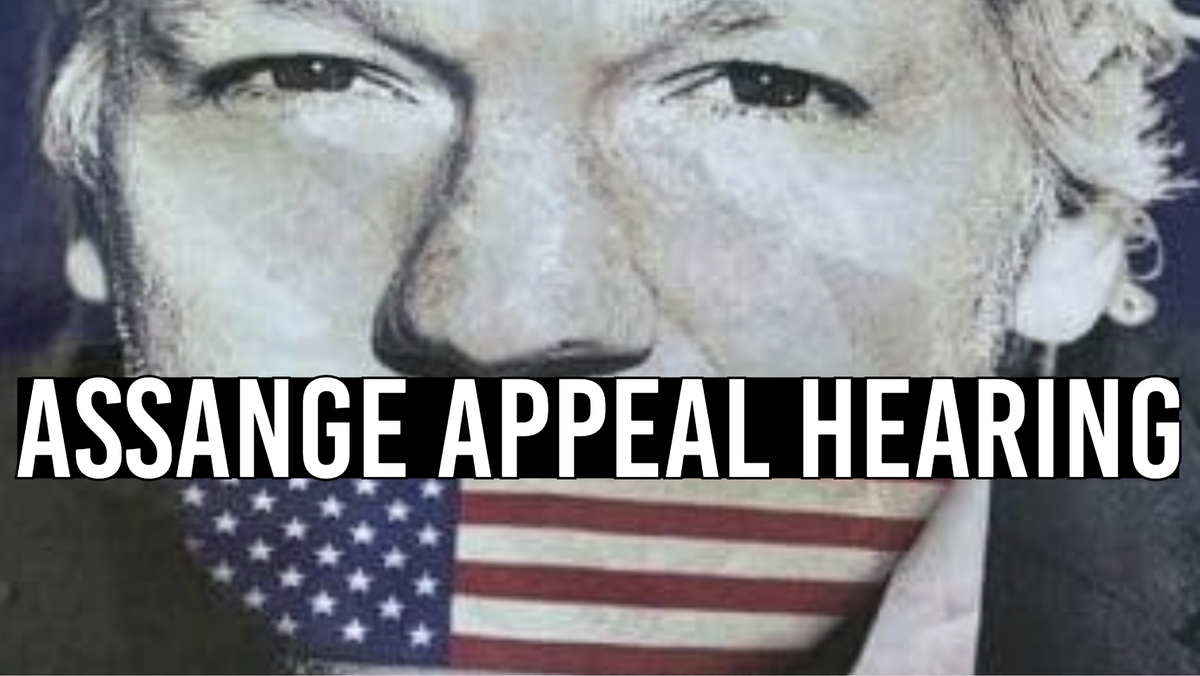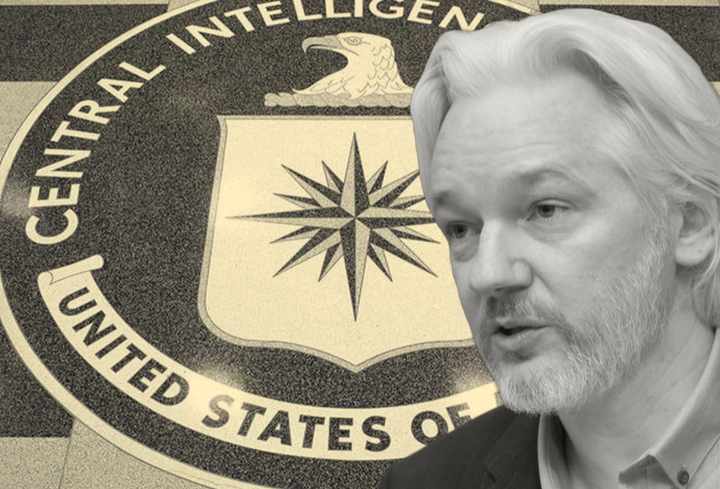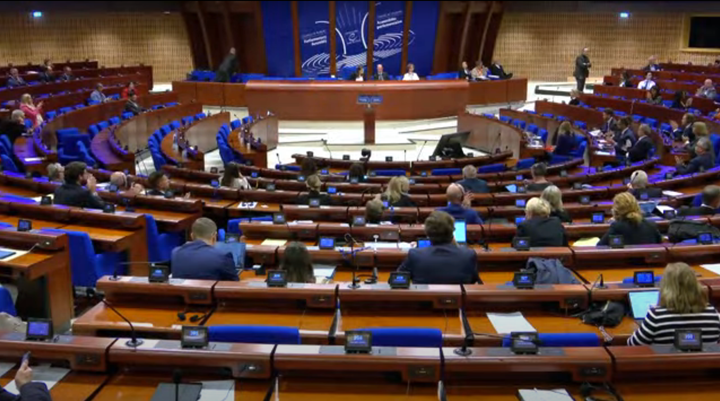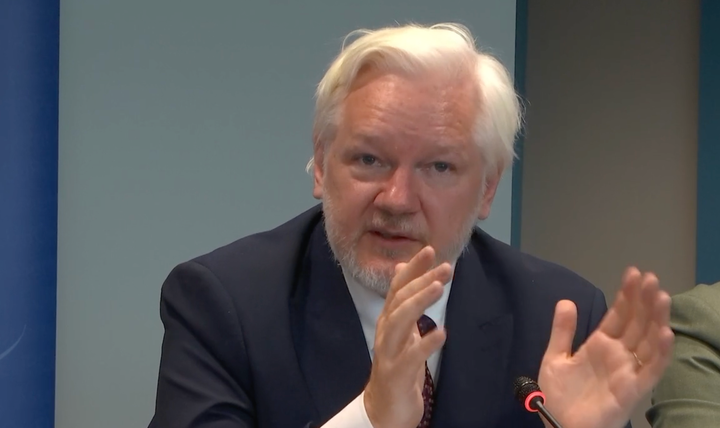UK Appeal Hearing: US Suggests Assange Has No First Amendment Rights
The lead U.S. prosecutor in the case against WikiLeaks founder Julian Assange raised the idea that the U.S. may argue Assange has no First Amendment rights.

Editor’s Note: The following was published as part of a “Countdown To Day X” series highlighting key aspects of WikiLeaks founder Julian Assange’s request to appeal his extradition to the United States.
It was the lead United States prosecutor in the extradition proceedings against WikiLeaks founder Julian Assange, who first raised the idea that U.S. prosecutors may seek to deny Assange any rights under the First Amendment to the U.S. Constitution.
Assistant U.S. Attorney Gordon Kromberg in the Eastern District of Virginia, where Assange was indicted, submitted a January 17, 2020, affidavit [PDF] to the British district court. It informed the court that Assange would have the opportunity to challenge the Espionage Act charges against him if he was extradited.
Kromberg mentioned that Assange could claim “that his conduct was protected by the free speech provisions of the First Amendment.” But immediately after, he added, “Concerning any First Amendment challenge, the United States could argue that foreign nationals are not entitled to protections under the First Amendment, at least as it concerns national defense information."
Assange and his legal team would like the British High Court of Justice to grant a full appeal hearing and reckon with the fact that the U.S. Justice Department (DOJ) said they could deprive the WikiLeaks founder of free speech protections.
CIA Director Mike Pompeo boasted in his memoir “Never Give An Inch” that he was instrumental in Assange’s arrest by British police and expulsion from Ecuador’s London embassy.
“I pursued Assange’s extradition hard as CIA director and secretary of state, both because the American people and our CIA officers deserved justice and because I wanted the Russians to know that I was on a mission to crush the nominally independent hacking groups they sponsored and used as their pawns,” Pompeo proclaimed. “I lobbied the Ecuadorians to kick Assange out of his pathetic accommodations inside their embassy, and they finally capitulated on April 11, 2019.”
It was Pompeo, who in remarks in April 2017, asserted that Assange had no First Amendment rights after denouncing Assange and WikiLeaks in his first public speech as CIA director.
“Julian Assange and his kind are not the slightest bit interested in improving civil liberties or enhancing personal freedom. They have pretended that America’s First Amendment freedoms shield them from justice. They may have believed that, but they are wrong,” Pompeo declared.
Pompeo shared his “philosophical understanding” of the First Amendment. “Julian Assange has no First Amendment freedoms. He’s sitting in an embassy in London. He’s not a U.S. citizen.”
Assange’s defense urged District Judge Vanessa Baraitser to take Pompeo and Kromberg seriously when making her decision on extradition. “No U.S. nationals involved in the receipt and publication of the [Chelsea] Manning materials have been prosecuted. This demonstrates that [Assange] is the victim of discrimination on grounds of nationality and faces prejudice in the U.S. as a consequence of his foreign status in his trial.”
The Crown Prosecution Service (CPS) that is seeking extradition on behalf of the U.S. government replied [PDF], “Mr. Kromberg has fairly indicated that the prosecution may seek to argue that Assange as a foreign national is not permitted to rely on the First Amendment, at least as it concerns defense information.”
“This does not demonstrate that Assange will be punished on account of nationality or his opinions or prejudiced at trial on account of them,” CPS insisted. All Kromberg had done, according to CPS, is merely put forward “possible arguments of law that may be utilized at trial to define the outer limits of Assange’s right to rely on free speech."
As with a number of concerning aspects of this case, Baraitser accepted the explanation from Crown prosecutors that what Kromberg told the court was of no consequence, even though he may very well represent the U.S. government in a potential trial.
“The opinion of Mr. Pompeo when director of the CIA, that Mr. Assange will not benefit from the protection of the U.S. Constitution, is in my view immaterial. So too is Mr. Kromberg’s suggestion that the prosecution may raise this as an argument at trial,” Baraitser asserted [PDF].
“It will be for the U.S. court to determine the proper application of the law to Mr. Assange and according to objective criteria,” Baraitser continued. “No authority has been provided which supports the notion that a U.S. court would remove the protections of the U.S. Constitution for someone in Mr. Assange’s position, who is physically within their jurisdiction and facing a criminal trial before their courts.”
In drawing this conclusion, Baraitser disregarded the statements from Pompeo and news reporting on the CIA director that indicates his opinion did matter to the DOJ. They were aware that not only was Pompeo playing a role in aggressively pursuing Assange’s prosecution, but if they did not satisfy his zeal for a robust criminal indictment, then a massive scandal involving the CIA could occur.
***
Back in February 2020, I spoke with former New York Times general counsel James Goodale, who represented the media organization in the Pentagon Papers case. He addressed the idea put forward by the U.S. government that Assange may have no First Amendment rights.
“What happened once a long time ago was that a drug dealer in Mexico was arrested in violation of the Fourth Amendment, and the Supreme Court said hey, the guy’s in Mexico. He doesn’t get the protection of the Fourth Amendment,” Goodale recalled. “I don’t think that applies to this case because, first of all, it’s a First Amendment case, and secondly, in the drug dealer case, he was being pilloried in Mexico.”
“In Assange’s case, when he broadcast his information—that is to say when he put it on the net—it went worldwide, and it came into this country. So he was in the country, and if he’s in the country, he should get the protection of the First Amendment. The drug dealer to whom I referred was not in this country.”
“Pretty disturbing that the government would take somebody who is in a country other than the United States, namely Assange, and say that he’s subject to the Espionage Act of this country but he doesn’t get the protection of the other laws that would otherwise protect him. It’s the most outrageous goddamn thing I’ve ever heard,” Goodale concluded.
A big thanks to new donors and paid subscribers of The Dissenter. For further reading, here's where you may purchase a copy of my book, "Guilty of Journalism: The Political Case Against Julian Assange."




Comments ()